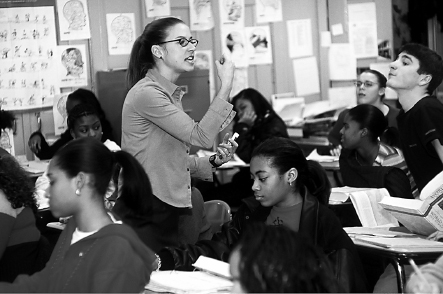Influencing Others
Influencing Others
Page 7
Culture and You
In your family’s culture and relationships, are there members who tend to have greater control than others? If so, who are they, and why do you think that is? Have you noticed different distributions of control in other families or groups of friends?
Most communication is influential in one way or another. Some influence is intentional: a politician uses gestures strategically during a press conference to shape how voters perceive her. Other influence is unintentional; Michaela’s lack of eye contact during an after-class meeting gives her professor the sense that she lacks confidence, but she’s really just having trouble with her contact lenses.
The ability of one person, group, or organization to influence others, and the manner in which their relationships are conducted, is called control. Unlike affection, which you can give and receive infinitely, control is finite: the more control one person has in a relationship, the less the others in the relationship have. Distribution of control is worked out between the relational partners through communication—by how they talk with each other, what they say, and when they interact. This negotiation of control may seem like a power struggle at times.1 But it is a necessary aspect of every type of relationship: between family members, friends, romantic partners, colleagues, doctors and patients, teachers and students, and advertisers and consumers.
The amount of control you have over others or that they have over you varies, depending on the situation and each person’s status. Sometimes control shifts from one party to another. For example, as a new bank employee, Manny looks to his manager, Alexis, for direction and advice about how to do his job well. The unequal control distribution is appropriate and meets Manny’s and Alexis’s expectations of their job responsibilities. But as Manny becomes more comfortable in the job, he will likely take more control, and Alexis will let him work more independently. This redistribution of control is a natural process.
